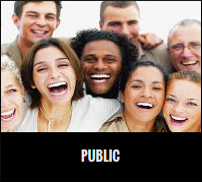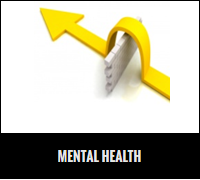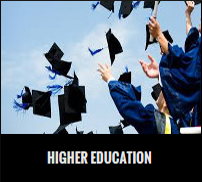Development of Mind
As the mind develops, the ‘Self’ begins to notice that those in charge of its development are trying to reach another part of it other than its body. The repetitious nature of much of this early communication is intended for the self to remember certain things like the naming of objects. It begins to realize that it can bring forth, recall this repetitious information. That it is using something else other than its body. It begins to use this other part and finds that it is rewarded with appreciation from those in charge. It begins to enjoy using it. The ‘Self’ may not know yet what this other part is or what it is called, or where the seat of this apparatus, its mind, is. Those attending to it are beginning to teach it language, counting, the recognition of objects, later memorizing facts, and later are asking it to think about problems of mathematics, reasoning, consequential thinking, etc. It is natural for the self to start to think of itself as a mind and a body.
Since the concept that we are ‘Self’, as well as body and mind, the conscious force that is aware of and makes decisions with relation to its body and mind, is missing from our developmental philosophy, it’s, the ‘self’s’, developmental needs are never addressed. Nor does it become fully aware and conscious of its own abilities/facilities. Therefore the ‘Self’s’ needs and developmental potential are left latent or damaged and continue to wait to be fully developed.
From conception each human being has a life force, an energy to potentialize its body, mind, and ‘Self’. The reality of this life force is obvious when we consider how the zygote potentializes in the womb into a full blown human being which is birthed. This life force continues throughout life. From conception and on into late teens each human being’s life force, the energy to potentialize, is focused primarily on the full development of the body. Once that is completed, this developmental energy, the life force moving us to develop fully, now finished with potentializing the body, shifts its entire energy to the full development of the mind’s potential. From late teens to around 40 years of age each human being’s life force, the energy to potentialize, is focused primarily on the full development of the mind. That is why the questions a human being asks at around age of 13 are body centered – What’s for dinner? Can I get the latest sneakers? Is there a pimple on my nose? Around the age of 20 plus, it shifts to questions that are conceptual, mind centered – the existence of God, gender issues, race issues, political issues, career issues, etc.
The third stage, which starts around 40 years of age, is when nature again shifts its energy from the development of the mind’s potential to the full development of the self’s potential. This explains not only ‘mid-life crisis’, but why so many individuals begin to turn from materialism, which is simply the self’s use of the calculator that is the brain, quantifying everything, thinking that more is better, and that more equals happiness, to a realization that more is not making oneself or anyone for that matter happy. The shift occurs when the questions that are being asked regarding how to achieve happiness change from quantity of stuff, money etc., to the quality of one’s life. This is when one begins to question one’s own motives, attitudes, relationships, career path, thus becoming what we might call a more aware person, and perhaps one who yearns for a more spiritual life-style. I believe it is this transition, not loss of youth, fear of death, or the empty nest syndrome, that causes divorces and career changes.
Of course, even though going through each stage is part of nature’s plan, the mind and Self stage must be consciously cultivated by other human beings. This, self-development of the body stage, can be seen when a child will naturally try to stand up, then try to walk, engage in play and generally try to imitate other bodily movements and actions of older humans around him or her. All of this helps develop the body’s potential and foster growth. The same is true to a very limited degree with the mind. A child might acquire language by imitation, but reading, writing, problem solving, consequential and creative thinking must be explained and taught. The final stage, that of developing and potentializing the ‘Self’, takes the greatest amount of teaching and conscious attention by the adults in a child’s life, in order to have it be healthy and ready to potentialize its full development later on.
Historically, two factors prevented people from potentializing both their mind and their ‘Self’. One was the fact that the average life span was so short that it prevented most people from reaching the chronological age where their life force could shift into either the full development of ‘mind’ (20 plus) or later to the full development of the ‘Self’ (40 plus). Second, was the fact that both of these developmental stages need conscious attention and teaching by those who have developed their own minds and developed their own ‘Selfs’. There was no universal education and there were very few people to exercise and develop their minds beyond language, and spoken traditions. There were even fewer people whose ‘Self’ was developed, who could then help to develop and potentialize others’ ‘Selves’.
When philosophers and psychologists debate about the ‘Self’ it is always whether there is a ‘Self’, some type of solid, full blown, finished entity, or not. In trying to get a handle on the ‘Self’ it seems we harken back to ideas we generally think of as spiritual: an immortal soul that persists after the body dies, a being, a spirit, as in guardian spirit, an invisible activating entity inside of us that usually is ascribed consciousness, and often is synonymous with goodness. Many relate to ‘self’ as a spirit in a similar way that they see ‘God’ as a spirit.
What seems to be missing from this debate is the possibility that the ‘Self” is very much like the body and mind, birthed at the same time and totally integrated with body and mind. It is not a ‘separate’ entity but has different facilities, as do body and mind. I believe all three are vibrating, energetic entities. All three come into existence at birth. All three need nourishment and nurturing. All three have their own developmental potential. For simplicities sake, I call the various abilities that can be potentialized in the body ‘muscles’, the mind ‘capacities’, and the ‘Self’ ‘facilities’. All three need specific ‘exercises’ for their specific ‘muscles’ to fully develop. If you tie up the feet, like the Chinese used to do, you can damage the body’s potential for mobility, balance, etc. If you do not engage the mind of a child in reasoning, do not talk to a child, you will damage the mind’s potential to communicate and reason. The ‘Self’ has its own ‘facilities’, with potential to develop. But since we cannot see ‘Self’, and since from science’s perspective it does not exist, we do not worry about what developmental damage we may be causing by ‘tying it up’, not nourishing it properly, not exercising it suitably, and not developing it correctly. I believe the ‘facilities’ of ‘Self’ are actually diminished and damaged over time, instead of being fully developed, which I believe is the primary reason why people experience emotional problems, feel unsatisfied and unfulfilled with their lives.








